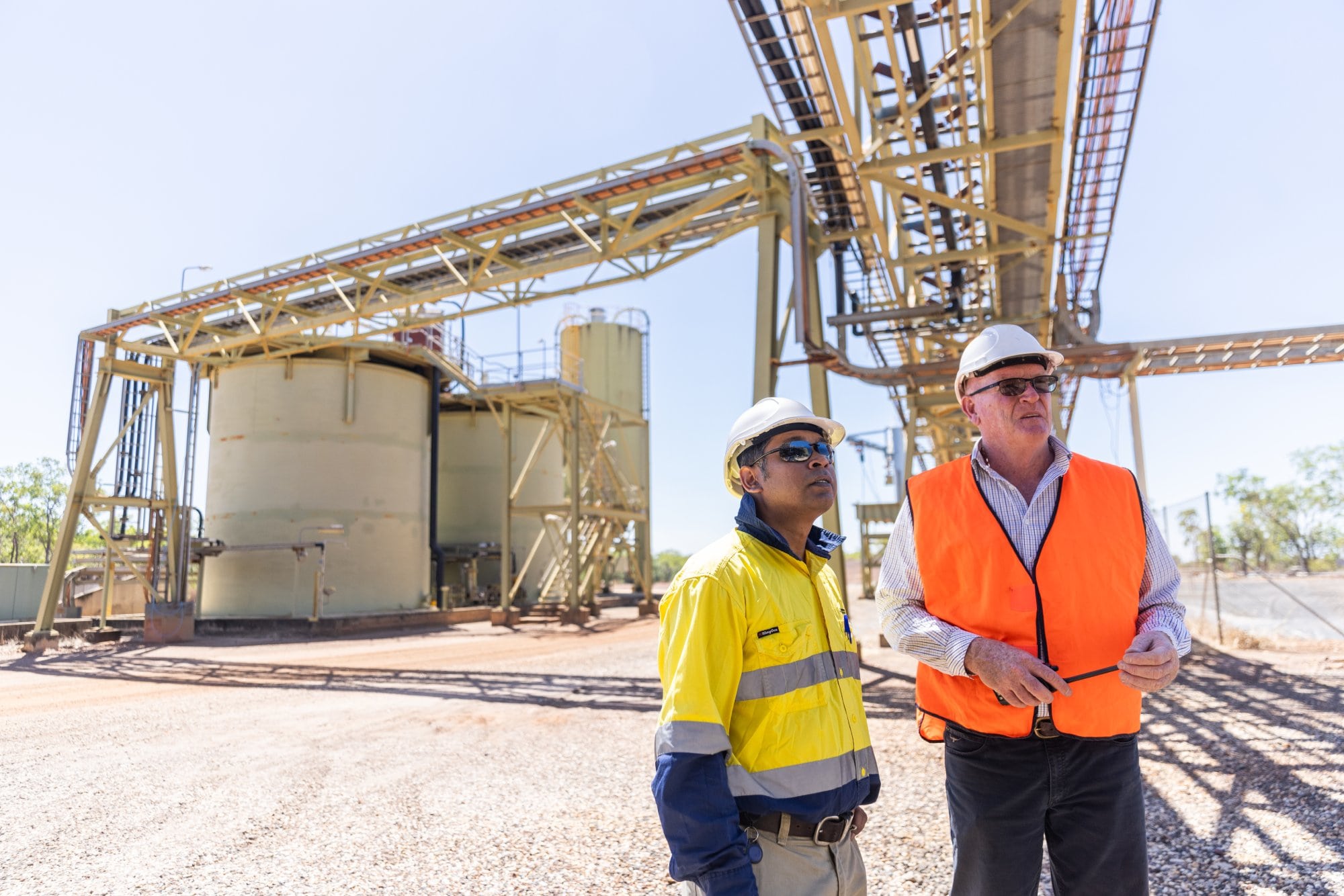Mining and Exploration
The Territory has a strict regulatory regime to support sustainable development of our mineral resources, and it is the responsibility of the Northern Territory (NT) Government to apply these laws and keep them modern, robust, and transparent.
As the regulator, the NT Government works with the mining sector to make sure industry is following these laws and doing right by the Territory.
While regulation is about ensuring that things are being done properly for today and for tomorrow, it is also about ensuring Industry keeps the community and Territorians informed.
This includes landholders, land councils, Traditional Owners, community groups and other members of the public.
The NT Government owns all minerals and extractive minerals in the NT.
This excludes uranium, which belongs to the Australian Government.
You must apply for a mineral title if you want to explore for, or mine minerals, or take extractive minerals such as sand, gravel, rock, peat or soil.
Once you have been granted a mineral title, you may need to apply for a separate environmental (mining) licence to conduct activities that are likely to cause substantial disturbance on the land within the title area.
Any company that wants to explore for or mine minerals must obtain a mineral title under the Mineral Titles Act 2010 and apply for approval under the Environment Protection Act 2019.
The process of obtaining a mineral title will vary due to factors such as the title type or the land tenure. The different types of mineral title applications can be found on the Northern Territory Government website.
Mining is now regulated through the Environment Protection Act 2019 which came into effect on 1 July 2024. Read more about the changes and transitional arrangements on the Department of Lands, Planning and the Environment website.
The 2 main types of land tenure in the Territory are Aboriginal freehold and pastoral land which is affected by Native Title.
An application to explore on Aboriginal land can only be granted if consent is given by Traditional Owners through their representative land council after consultation; and an agreement is reached by all parties.
The process for how this must be done on Aboriginal land is set out in the Aboriginal Land Rights (Northern Territory) Act 1976 .
An application on native title affected land is subject to Commonwealth laws under the Native Title Act 1993. The type of mineral title applied for will determine which process should be followed.
Mining companies conducting exploration or mining must also comply with environment protection obligations in the NT.
If proposed mining activities are likely to have significant environment impacts, an environmental impact assessment may be needed through the Environment Protection Act 2019.
There are other rules and regulations in place that must be complied with in the Northern Territory, and these are governed by the:
Northern Territory
- Mineral Titles Act 2010
- Environment Protection Act 2019
- Legacy Mines Remediation Act 2023
- Northern Territory Aboriginal Sacred Sites Act 1989
- Heritage Act 2011
- Waste Management and Pollution Control Act 1998
- Water Act 1992
Commonwealth
For any planned mining disturbance, mining companies must pay money as security to the NT Government so that mining sites can be rehabilitated.
This applies to activities authorised by an environmental (mining) licence under the Environment Protection Act 2019. This covers anticipated costs if the NT Government needs to take action to:
- prevent, minimise or rectify environmental harm caused by mining activities on or outside of the mining site or
- complete rehabilitation work.
Read information about mining security and levy on the Northern Territory Government website.
Legacy mines are areas where mining activities happened in the past, but there is no security in place. These sites can include various features like infrastructure and waste rock dumps.
Current mining operators must pay a security and an annual levy. The levy is 1% of the security and is non-refundable. The levy is used to support the Mining Remediation Fund (MRF).
The NT Government manages the MRF and uses it to address the impacts of legacy mines.
The Legacy Mines Remediation Act 2023 has now commenced which contemporises the way legacy mines and legacy mine features are managed in the Territory.
Read more information about the Mining Remediation Fund and legacy mines and remediation on the Northern Territory Government website.
Fossicking is a non-commercial, recreational activity allowing a person to collect, extract and remove a limited amount of rocks, minerals and crystals by means of digging by hand or using hand held implements, to a depth of up to one metre.
Fossicking in the Northern Territory is regulated under the Mineral Titles Act 2010 and Mineral Titles Regulations 2011, which are administered by the Mineral Titles Division of the Department of Mining and Energy, who are responsible to the Minister for Mining.
Read more information about fossicking, go to the Fossicking in the Northern Territory website.
